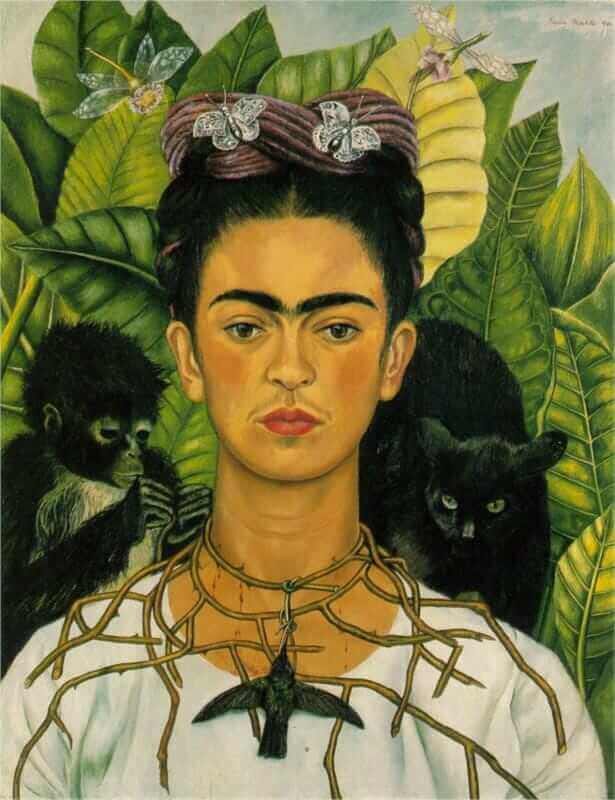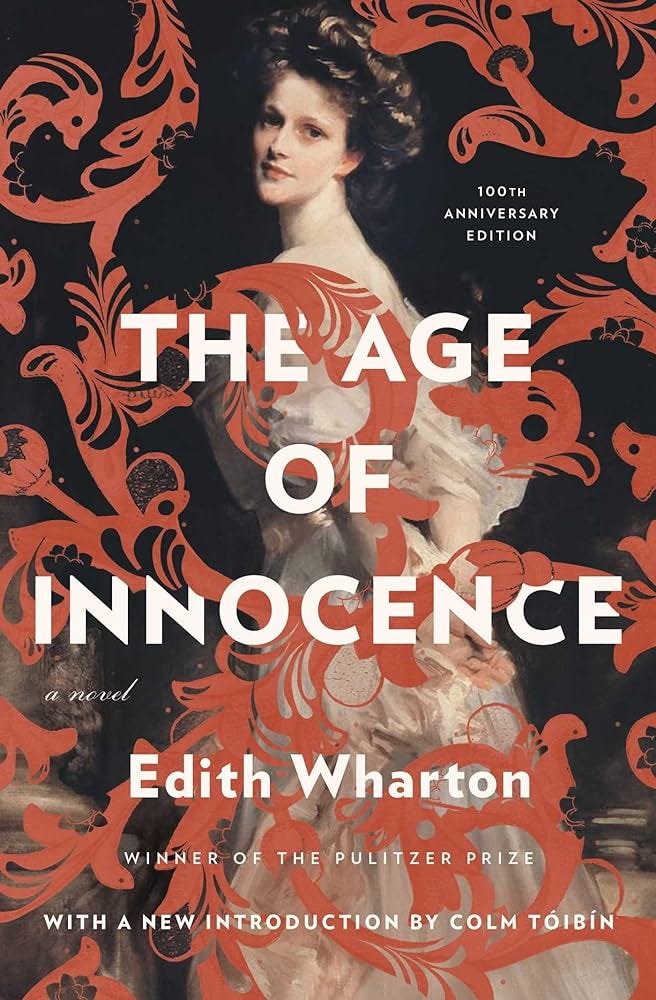What to Read Next: Pioneering Women
Issue #334, featuring Edith Wharton and Katie Rogers
Happy Friday, readers!
This week’s reading took me into the lives of America’s most pioneering women. On the Pulitzer front, I finished Edith Wharton’s Age of Innocence. Wharton was the first woman to win the prize and has ultimately become one of America’s most celebrated authors. I also finished Katie Rogers’ American Woman, about Jill Biden and being the First Lady in our modern era.
It made sense, then, to feature Frida Kahlo, one of the great independent spirits in the history of art. Her lifelong physical and mental distress, combined with her confidence and honesty on the canvas, led to an unforgettable legacy of emotionally powerful pieces. Self-Portrait with Thorn Necklace and Hummingbird is a great example.
To the books!
The Age of Innocence by Edith Wharton
Edith Wharton’s classic The Age of Innocence (1920) is the best-known novel from the first 20 years or so of the Pulitzer Prize. (Gone With the Wind, published in 1936, is probably the next most well-known, chronologically.) Those early years actually provided a lot of controversy, because the wording for the prize suggested that the winning title should be “wholesome” in nature. Authors like Sinclair Lewis were miffed about that, believing literature should do more than offer wholesome platitudes about American life.
Edith Wharton was a bit surprised, then, when her novel was chosen over Sinclair Lewis’s Main Street (which didn’t uphold American morals well enough); she mused that the committee must have misread The Age of Innocence if they found it so wholesome.
I have to agree. From the outset, it seemed apparent that Edith Wharton — who grew up in an opulent NYC home — mostly skewered the shallow culture and attitude of wealthy socialites (even if there is some romantic nostalgia thrown in).
In the story, young Newland Archer is torn between duty and passion. He weds a fine young woman in May Welland, but she lacks any independence or spirit — she’s been fully, boringly molded by upper-class society. On the other hand, the exotic Ellen Olenska is separated from her controlling husband and shows Newland that it’s possible to live outside the norms you’re accustomed to.
Though Wharton’s writing was brilliant at times, I had a harder time getting through The Age of Innocence than the other Pulitzer winners I’ve read. The style matched the lavish setting, which made it hard to follow at times. And the story was fairly slow — Wharton’s plot doesn’t really show itself until the final quarter of the book. Overall The Age of Innocence didn’t quite do it for me. I’m glad to have read it — there are some all-time great lines: “We can’t behave like people in novels, though, can we?” — but it won’t be contending for my favorites lists.
American Woman by Katie Rogers
In the midst of my presidential reading project, I also ended up reading a few books about our First Ladies. Their stories inevitably show a different side of an administration, and in most cases those women have had far more behind-the-scenes influence than is obvious. In this new book from White House correspondent Katie Rogers, readers get a look at the lives of our modern First Ladies, starting with Hillary Clinton and bringing us to Jill Biden.
From Martha Washington to Barbara Bush, presidential wives mostly stayed out of the limelight, except for news about fashion or domestic issues. In 1993, when the Clintons entered the White House, Hillary broke the mold and became a truly independent voice in her husband’s presidency. It obviously didn’t always go well for the couple, but it signaled the end of a demur First Lady — 24/7 cable and online news made sure of that. From then on, every First Lady’s every move has been analyzed and scrutinized.
Rogers gives chapters to Clinton, Laura Bush, Michelle Obama, and Melania Trump, with the greatest portion of the book devoted to Jill Biden’s life and career. Interspersed throughout, she includes a lot of interesting tidbits about First Ladies in the course of American history and how the role has drastically changed.
I didn’t know much about Jill, so it was quite interesting to learn of her background, her humble but influential career as an educator, her influence on Joe (and his policies), and more.
The lack of an overarching narrative made it a little bit slow for me, given the manageable page count. That said, American Woman is definitely a worthwhile read for anyone interested in presidential or women’s history. A peek behind the domestic curtain of the White House always makes for an intriguing story.
Thanks so much for reading. I deeply appreciate your time and attention.
-Jeremy




The Age of Innocence is a favorite of mine, for all the reasons already listed, and I adore her writing, especially her ability to fully immerse you in a world.
Have you read ‘The House of Mirth’? I am a huge Wharton fan and I believe that one to be, by far, her best.